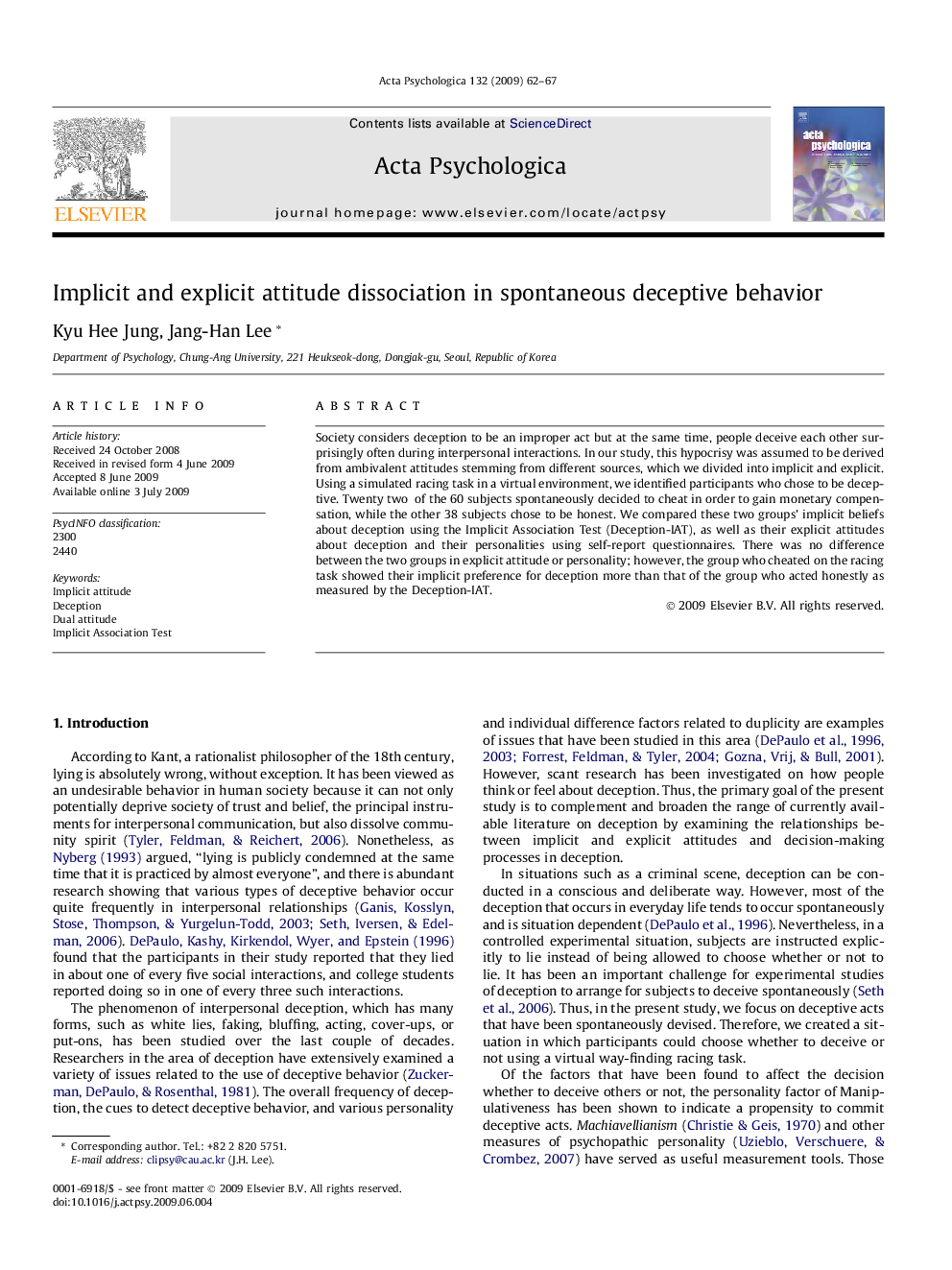| Article ID | Journal | Published Year | Pages | File Type |
|---|---|---|---|---|
| 920280 | Acta Psychologica | 2009 | 6 Pages |
Society considers deception to be an improper act but at the same time, people deceive each other surprisingly often during interpersonal interactions. In our study, this hypocrisy was assumed to be derived from ambivalent attitudes stemming from different sources, which we divided into implicit and explicit. Using a simulated racing task in a virtual environment, we identified participants who chose to be deceptive. Twenty two of the 60 subjects spontaneously decided to cheat in order to gain monetary compensation, while the other 38 subjects chose to be honest. We compared these two groups’ implicit beliefs about deception using the Implicit Association Test (Deception-IAT), as well as their explicit attitudes about deception and their personalities using self-report questionnaires. There was no difference between the two groups in explicit attitude or personality; however, the group who cheated on the racing task showed their implicit preference for deception more than that of the group who acted honestly as measured by the Deception-IAT.
